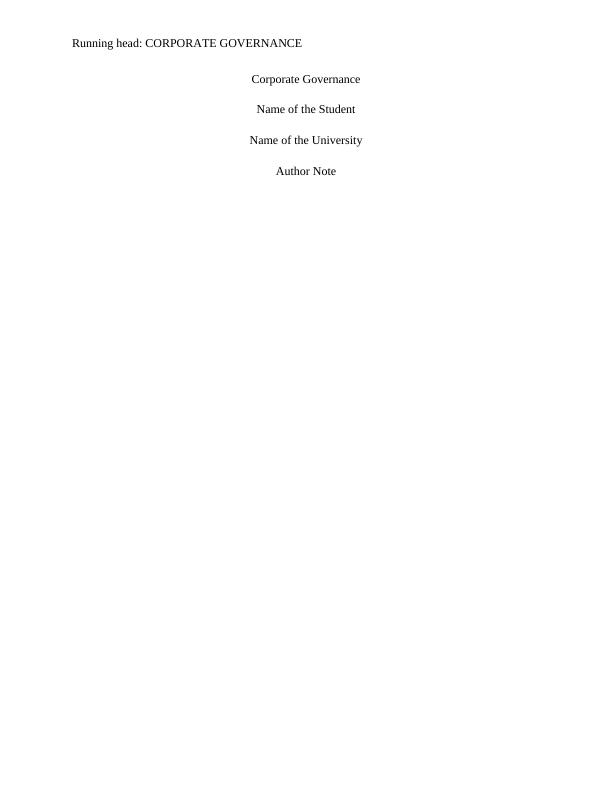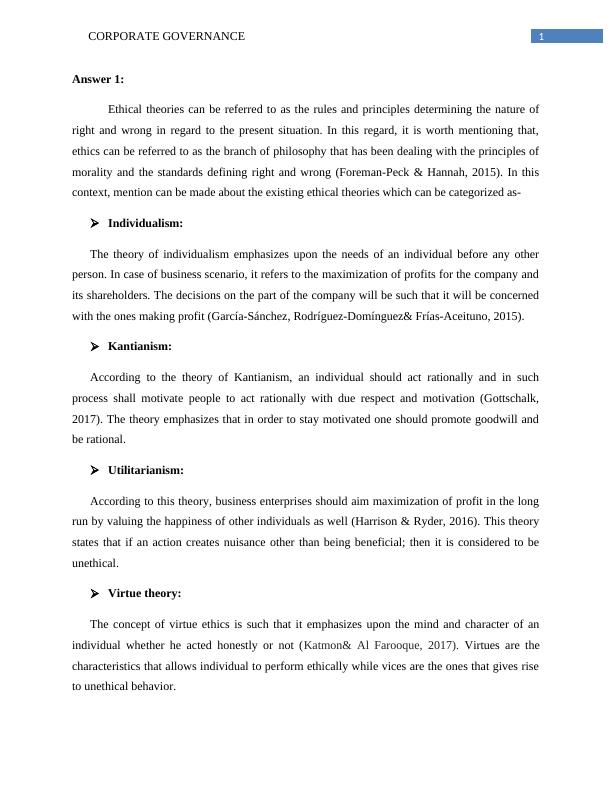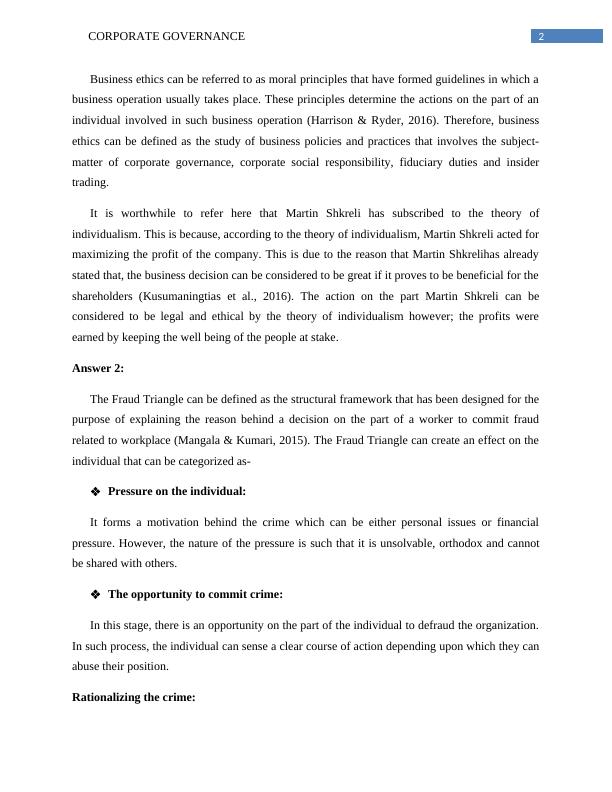Corporate Governance: Ethical Theories, Fraud Triangle, CEO Roles and Responsibilities, Securities Fraud, and Agency Theory
Understanding the scope and potential threats of global white-collar crime.
9 Pages2534 Words387 Views
Added on 2023-06-09
About This Document
This article discusses ethical theories, fraud triangle, CEO roles and responsibilities, securities fraud, and agency theory in corporate governance. It also explores the case of Martin Shkreli and his actions as a CEO. The article concludes with the importance of ethical codes of conduct and compliance monitoring to reduce corporate fraud.
Corporate Governance: Ethical Theories, Fraud Triangle, CEO Roles and Responsibilities, Securities Fraud, and Agency Theory
Understanding the scope and potential threats of global white-collar crime.
Added on 2023-06-09
ShareRelated Documents
End of preview
Want to access all the pages? Upload your documents or become a member.
Corporate Governance: Ethical Theories, Fraud Triangle, Roles of Chairman and CEO, Martin Shkreli Case, Agency Theory, Stakeholder Theory, Shareholder Theory
|8
|2042
|327
Ethical Theories Of Business Essay
|5
|1083
|195
CSR Issues and Business Ethics: A Critical Analysis
|10
|2783
|343
Ethics Definition & Meaning
|5
|892
|31
Corporate Governance, Financial Crime, Ethics and Control
|8
|2674
|208
Importance of Business Ethics: Case Studies and Ethical Theories
|11
|2948
|490



